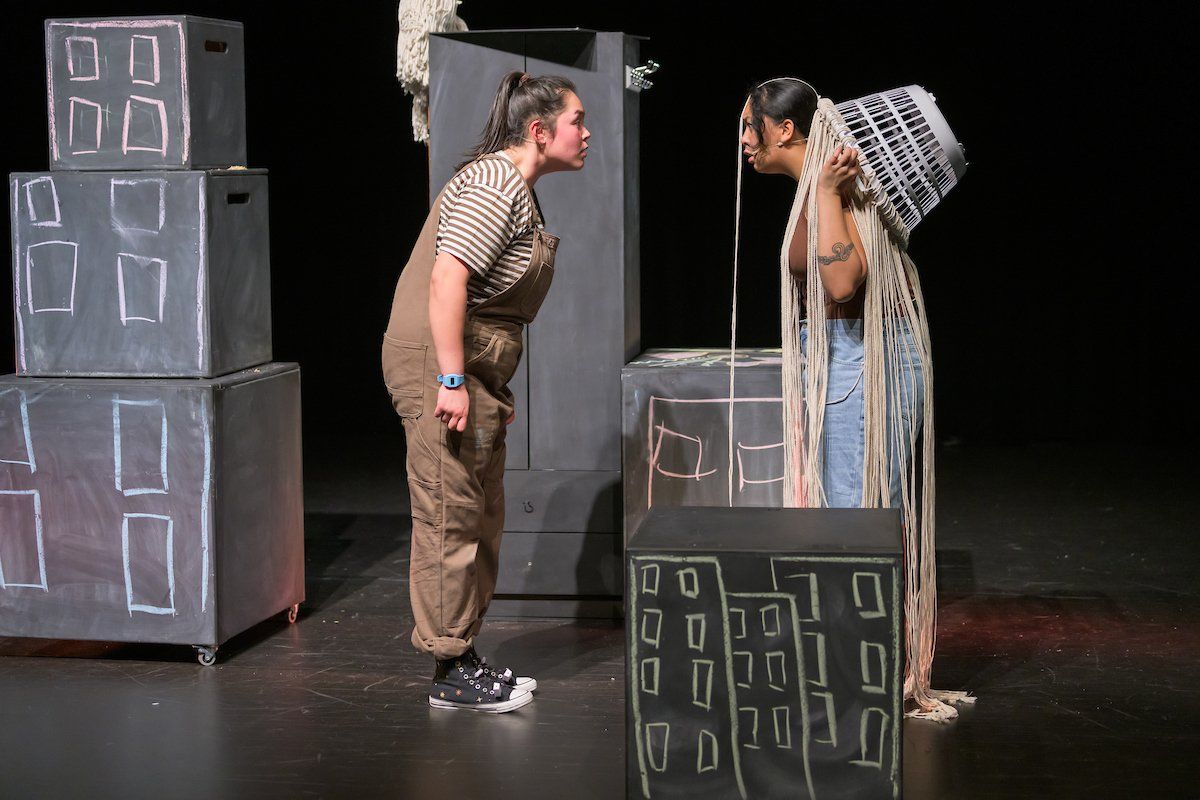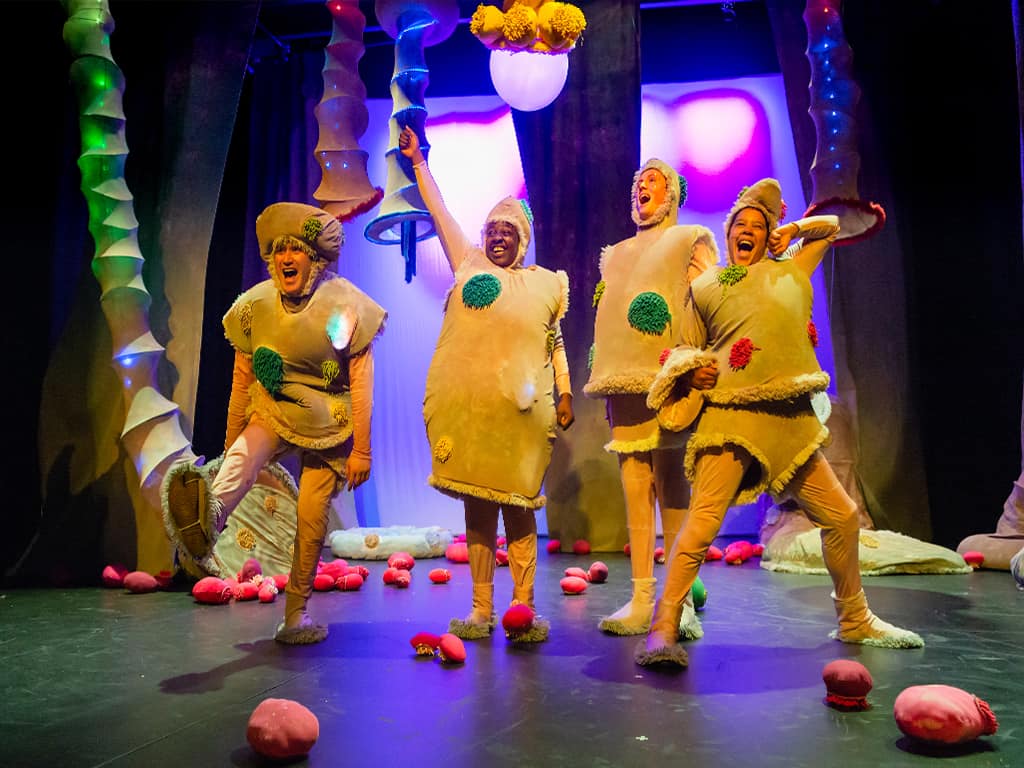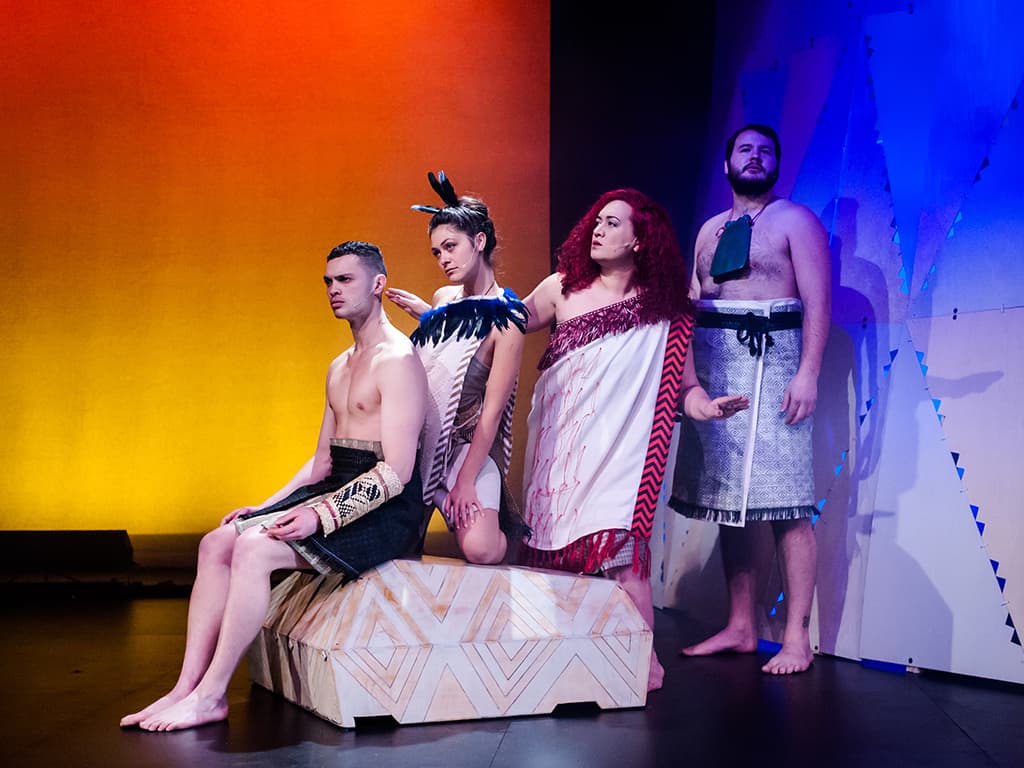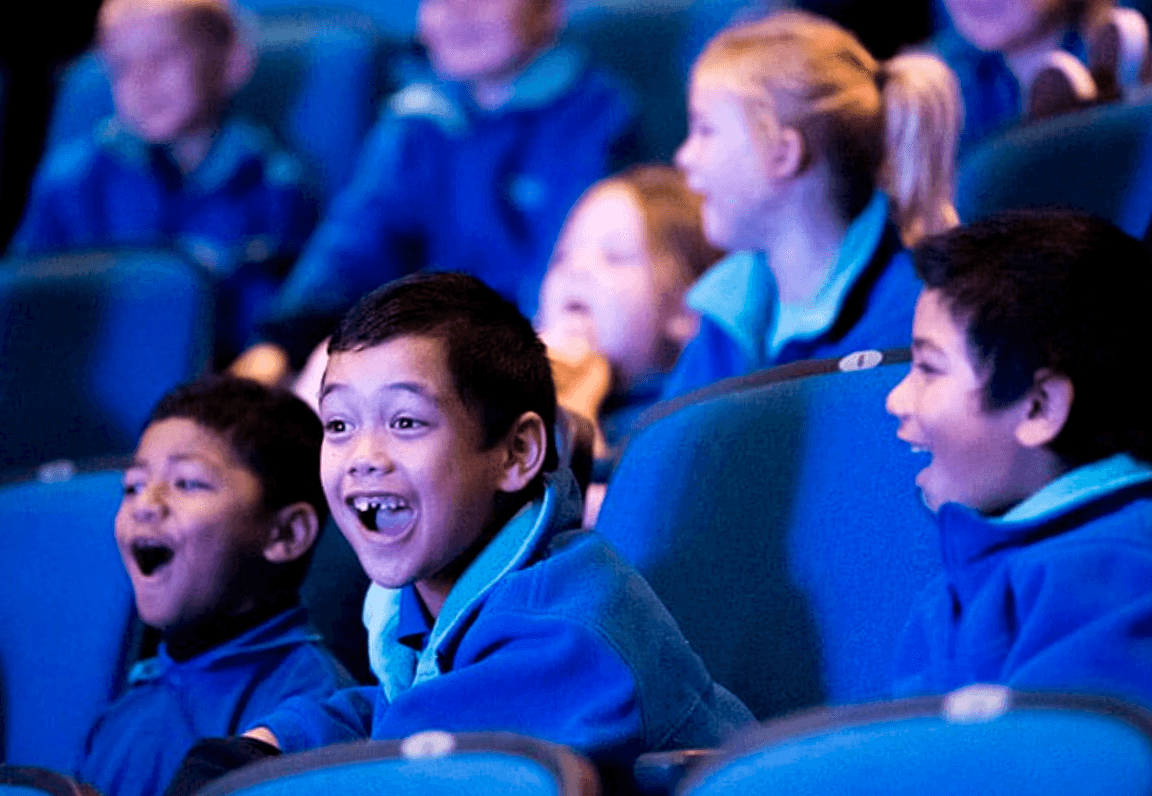Massive Blow To Youth Theatre
“With this closure, we are no longer served by a nationally focused company specifically charged with telling stories of this place and her people to the young" - Strong reactions to the shock end to a 25-year creative institution that could have big ramifications.

Gee, Experience Wellington sure seems to have it in for the nation’s cultural taonga in their care.
Not content with hamstringing City Gallery, they have now taken the knife to Capital E’s National Theatre for Children, which is now closing after a glorious 25 years of enthralling tamariki and ākonga around Aotearoa as part of Capital E’s National Arts Festival with what was often their first encounter with the magic of live theatre.
Says those at the helm of the decision:
“…Experience Wellington celebrates its legacy of supporting the creation and delivery of high-quality live theatre designed for children. The programme has been heavily subsidised for many years to make theatre accessible, and this model is no longer sustainable in the post-pandemic environment.”
The current and upcoming performances and school tour of The Grumpiest Child in the World will be the organisation's last.
I have previously covered Experience Wellington’s budget difficulties, and the impact of the COVID pandemic on the performing arts has been significant - but surely this is a matter of priorities. The National Theatre for Children is not just a Wellington thing, it’s of profound significance to all of Aotearoa.
This comes as a huge shock as in 2019, Capital E was granted $3,163,000 in funding over the next six years - a major boost of 13% on their previous funding - from Creative New Zealand's (CNZ) Toi Tōtara Haemata investment programme.
Sources close to the organisation allege a litany of woes, suggesting that Capital E was never the same after the Experience Wellington restructuring that also badly affected City Gallery and Wellington Museum - and that the National Theatre for Children (NTFC) is merely the latest casualty.
These sources observe that many long-term Capital E staff have left, and note that the theatre was not allocated a performance space in the new Wellington Central Library building that Capital E will be moving into when renovated and strengthened.
The National Arts Festival this year was suddenly and massively scaled back at short notice for financial reasons.

Stephen Blackburn, speaking to The Big Idea as a former director of Capital E - and wishing it to be made clear he is speaking in that capacity, not that of his present work with Wellington Council - had this to say:
“I am very saddened by the news of the closure of the National Theatre for Children. Having led it for 11 years, it holds a unique space in my heart as a company that innovated and led in the creative process around the development of new works in the New Zealand theatre landscape. It also enjoyed an international reputation for its work, which toured offshore regularly in the past.
“Peter Wilson, its founding director, instilled the need for high-quality theatre that was not TIE (Theatre in Education) or didactic work which, unfortunately, still to this day so much theatre in Aotearoa for young people exhibits.
“I am even more concerned that the funding will not be ring-fenced for new work for young audiences, an audience already badly underserved in the arts ecosystem. I have always advocated for a sports-like approach to arts funding. Invest in the young teams that build the future elite athletes or passionate sports attendees. Same with the arts. Yet the focus always seems to be on the end stage of that ecosystem.
“With this closure, we are no longer served by a nationally focused company specifically charged with telling stories of this place and her people to the young.”
An anonymous source close to the National Theatre for Children told The Big Idea:
“It will be a huge loss to the theatre for young people sector and to tamariki across NZ. NTFC reaches so many through their nationwide theatre schools tours and biennial National Arts Festival for children in Wellington.”National

PAYPA (Performing Arts and Young People Aotearoa) says, “We are deeply saddened at the loss of this well-loved theatre company after 25 years and the huge hole it will bring to our particular cultural landscape. We acknowledge and applaud the astonishing legacy of the many artists, technicians and productions the company has nurtured and created.
“As the sole investment client of CNZ that creates work for only children, the closure of Capital E's National Theatre for Children again highlights the urgent need for better investment and support for organisations and artists that create work for children.
"We are also concerned that no real announcement has been made from Capital E itself leading to concerns amongst the many alumni that have been part of the Capital E whānau and what will happen to their shared copyright, photos, scripts, sets, puppets and other taonga that could be utilised with relish by other groups in the country.
“The loss of Capital E's biennial national theatre festival is a major blow, and with the cumulative impact of the Covid-19 pandemic and the sudden cancellation of this year's festival, an entire cohort of primary school-aged children have missed out on this wonderful event.”

Noted performer Penny Ashton, though not having worked with the National Theatre for Children, has strong views about the importance of children’s theatre in general.
“The first theatre I remember seeing was Bad Jelly the Witch at the Court Theatre. I was transported and pretty much decided the stage was where I would be living and have done ever since. Children’s theatre sparks young imaginations and a country without a national focus on inspiring youngsters to transport others, seems a culturally stunted country indeed.
"I was also wildly inspired watching the Court Jesters as a teenager, with Cal Wilson as a shining star. Youthful impressions as inspiration are everything really. Today is… hard. Cal lit a path for many, and not just with her smile.”
Reactions on social media have been muted, but industry reactions on Instagram and Facebook largely consist of many sad and several angry face emojis.
Obviously, this closure has serious implications for both young people and the performing arts. The Big Idea will continue to monitor the situation.